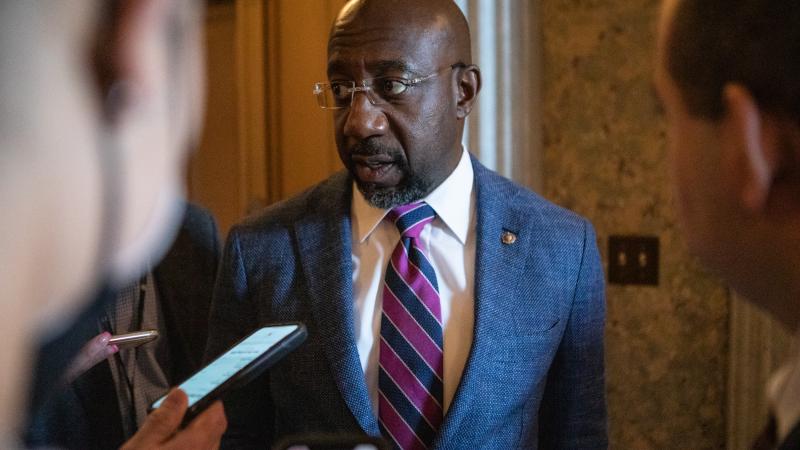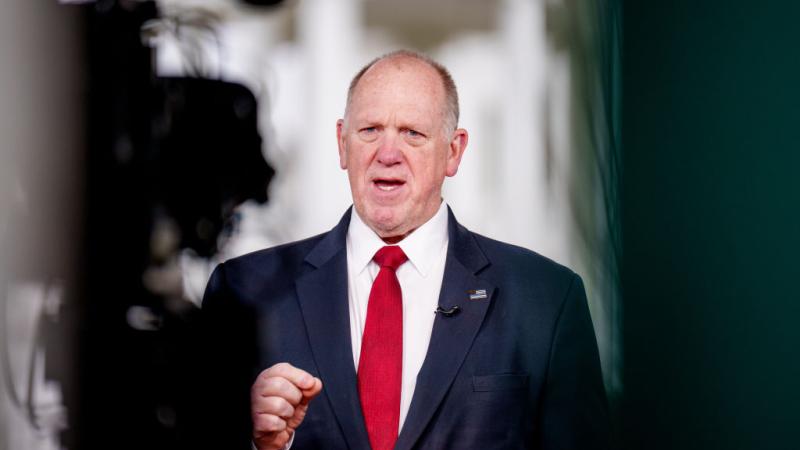Republicans, Democrats advocate FISA reform before year end despite pushback from White House
The White House says requiring the FBI to obtain warrants to search Americans’ phone records is an 'unworkable' reform, but two decades after the Sept. 11 attacks, the U.S. public is broadly skeptical of intelligence agencies and less certain of sacrificing civil liberties for security.
House Judiciary Committee Chairman Jim Jordan and other House Republicans are seeking major reforms to The Foreign Intelligence Surveillance Act (FISA) as the Dec. 31 deadline for its reauthorization fast approaches.
Jordan is preparing his own FISA reform bill that he plans to release soon, according to a person familiar with the draft reforms. A bipartisan collation of lawmakers have recently introduced their own reform bill as well.
The main target for reform is Section 702 of FISA, which "permits the government to conduct targeted surveillance of foreign persons located outside the United States, with the compelled assistance of electronic communication service providers, to acquire foreign intelligence information."
Jordan has argued that federal agencies like the FBI should be required to obtain warrants to search Americans’ phone records and emails.
The Privacy and Civil Liberties Oversight Board, an independent agency within the executive branch, formally recommended requiring federal law enforcement to obtain approval from a court prior to searching the database of phone records and emails.
“The scale of U.S. person queries, the number of compliance issues surrounding U.S. person queries, and the failure of current law and procedures to protect U.S. persons compels the Board to recommend a new approach,” their report said.
The White House disagrees with the board’s recommendation as "unworkable."
“That is operationally unworkable and would blind us to information already in our holdings that, often, must be acted upon in time-sensitive ways in order to prevent lethal plotting on U.S. soil, the recruitment of spies by hostile actors, the hacking of U.S. companies, and more,” a National Security Council spokesperson said in a statement, according to the Associated Press.
“We urge Congress to continue to work with us on alternative reforms that can strengthen Section 702 this reauthorization cycle without causing the type of detrimental effects to U.S. national security that this recommendation would generate,” the spokesperson added.
Republicans point to a U.S. court finding that the FBI inappropriately searched phone records 278,000 times over two years. Misuse of FISA by the FBI has previously raised hackles in Congress on both sides of the aisle.
Some Democrats have signaled a willingness to reform FISA instead of simply voting to reauthorize it in its current form. For example, Sen. Ron Wyden, D-Ore., responded to reports of the FBI abusing the FISA process on arrested Black Lives Matter protesters and Jan. 6 suspects.
"These abuses have been going on for years and despite recent changes in FBI practices, these systematic violations of Americans’ privacy require congressional action," he said.
"If Section 702 is to be reauthorized, there must be statutory reforms to ensure that the checks and balances are in place to put an end to these abuses," Wyden previously said.
Wyden is part of bipartisan legislation formally introduced on Nov. 7 to reform FISA. Rep. Zoe Lofgren, D-Calif., and Rep. Andy Biggs, R-Ariz., are sponsoring the House version.
Their legislation would “require warrants for surveillance of Americans’ location data, web browsing and search records, including AI assistants like Alexa and Siri, vehicle data and by prohibiting the government from purchasing Americans’ data from data brokers.”















